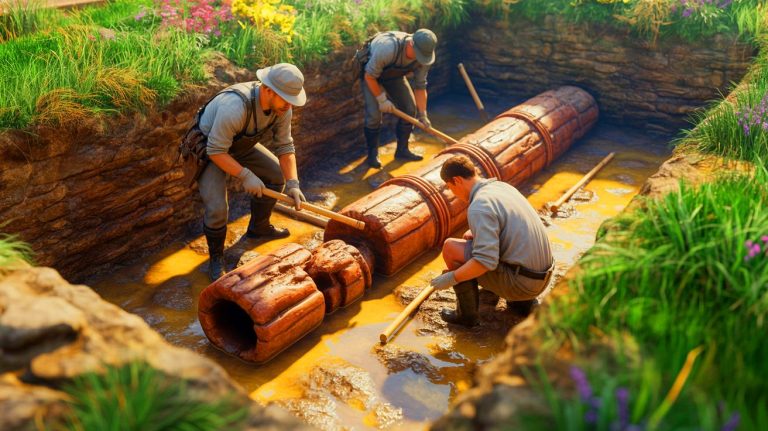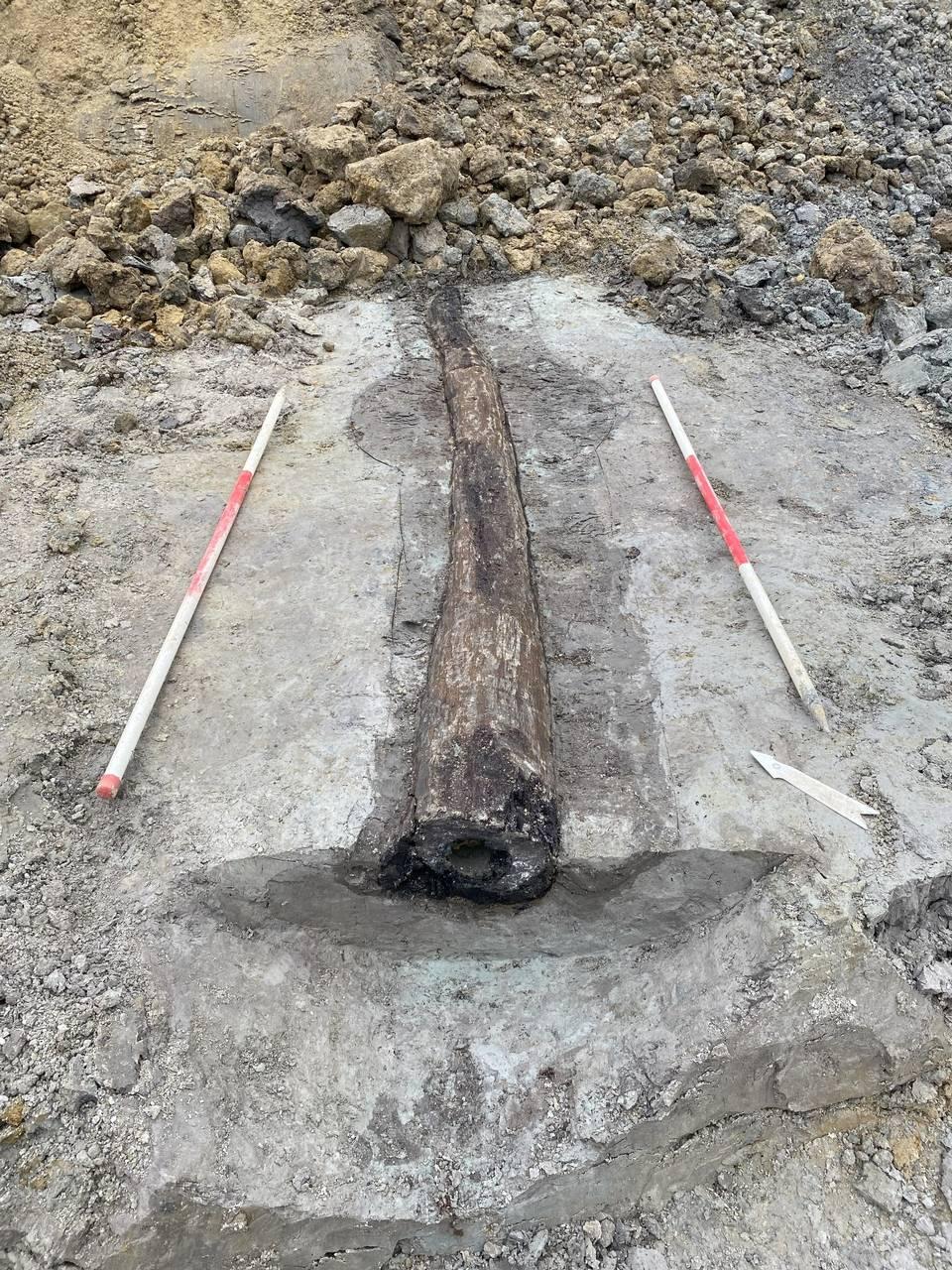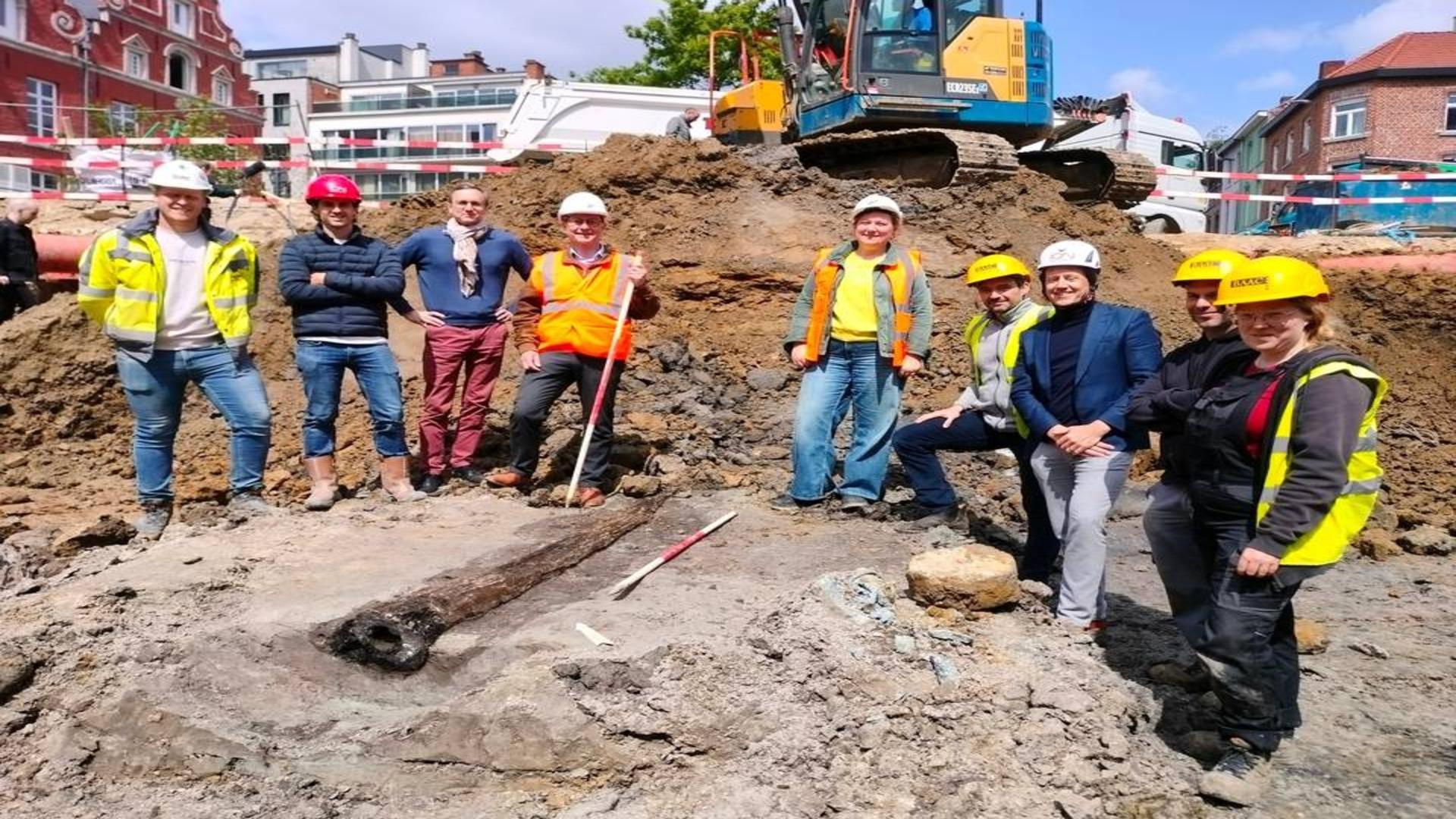| IN A NUTSHELL |
|
Amidst the bustling streets of Leuven, a city rich with history and culture, an extraordinary archaeological discovery has come to light. Excavations at a future student residence unearthed a 1,700-year-old Roman wooden water pipe, an unprecedented find for the region of Flanders. This ancient relic, remarkably preserved due to the marshy soil, offers a rare glimpse into the sophisticated engineering of Roman times. As experts delve into the significance of this discovery, it reshapes our understanding of Leuven’s role in the vast Roman Empire.
Uncovering Roman Engineering Marvels
The recently discovered Roman wooden pipe in Leuven is a testament to ancient engineering prowess. Located approximately 13 feet underground, the pipeline stretches between 65 and 100 feet, crafted from hollow tree trunks, each measuring about six feet. This remarkable construction highlights the advanced technology employed by the Romans, providing an essential water supply to the settlement. Such an engineering feat indicates that Leuven was more than just a minor settlement; it was a well-planned community with sophisticated infrastructure.
The preservation of the pipe owes much to the unique environmental conditions of the area. The constant marshy state of the soil near the Dijle River created a low-oxygen environment, preventing the wood from rotting over centuries. This discovery is particularly significant as it provides the first physical evidence of wooden water pipes in the region, confirming long-held suspicions among archaeologists. Previous indications of Roman water systems had been found in cities like Tienen and Tongeren, but physical remnants had always eluded experts until now.
Leuven’s Strategic Importance
In the second and third centuries AD, Leuven served as a “diverticulum,” a small settlement situated at a crucial crossroads near a military road. This strategic location connected the settlement to major Roman cities, enhancing its significance within the empire. The discovery of the water pipe suggests that Leuven was not merely a rural outpost but a thriving hub with advanced amenities, indicating a higher status than previously believed.
Alderman Dirk Vansina highlights the implications of such a find, suggesting that Leuven’s Roman roots are deeper than historical records initially indicated. The presence of a Roman pumping installation hints at an advanced water management system, showcasing the town’s importance in the Roman network. This revelation reshapes our understanding of Leuven, painting a picture of a bustling settlement with a rich infrastructure that supported its inhabitants’ needs.
The Preservation and Study of the Wooden Pipe
Following the discovery, the wooden pipes were carefully excavated to ensure their preservation and further study. Archaeologists and historians are eager to analyze the relics using tree-ring analysis to determine their precise age. This study will not only provide insights into the construction techniques of the time but also offer clues about the broader historical context of Roman Leuven.
The well-preserved state of the pipe is a rare archaeological triumph, allowing researchers to explore aspects of Roman engineering that have long been lost to time. The Leuven city council plans to display these relics, offering the public an opportunity to appreciate the technological advancements of the ancient Romans. This initiative reflects a commitment to preserving cultural heritage and enhancing our understanding of historical civilizations.
Implications for Understanding Roman Influence
The discovery of the Roman wooden water pipe has broader implications for our understanding of Roman influence in Northern Europe. It challenges previous assumptions about the extent of Roman infrastructure and settlement in regions like Flanders. By showcasing the advanced engineering capabilities of the Romans, the find underscores the sophistication of their settlements and their ability to adapt to different environments.
This archaeological breakthrough invites historians and archaeologists to revisit existing theories and explore new narratives about Roman expansion and influence. As more discoveries emerge, each piece adds to the intricate mosaic of Roman history, highlighting the empire’s far-reaching impact on modern Europe. What other hidden treasures lie beneath the surface, waiting to redefine our understanding of ancient civilizations?
This remarkable find in Leuven not only enriches our knowledge of Roman engineering but also sparks curiosity about the unseen layers of history beneath our feet. As archaeologists continue to uncover the past, what other secrets will they reveal about the ancient world, and how will these discoveries shape our perception of history?
Did you like it? 4.5/5 (24)













Wow, a 1,700-year-old water pipe! Who knew the Romans were the original plumbers? 🚰